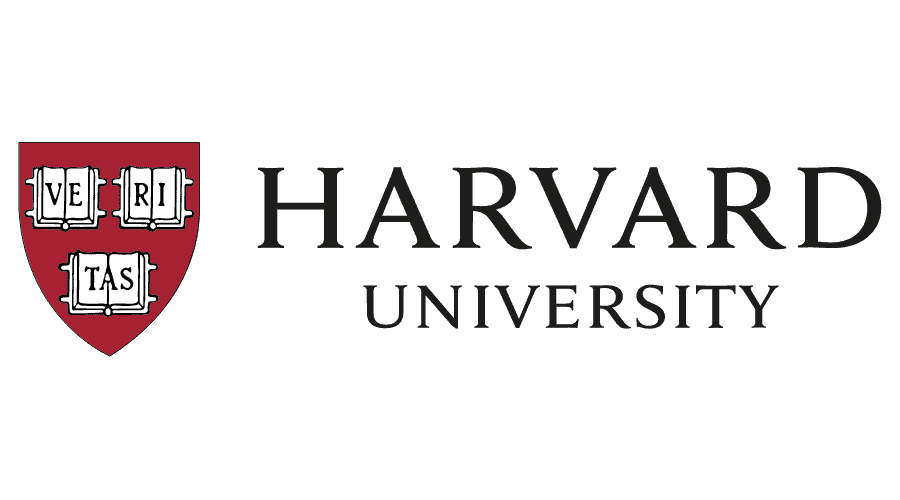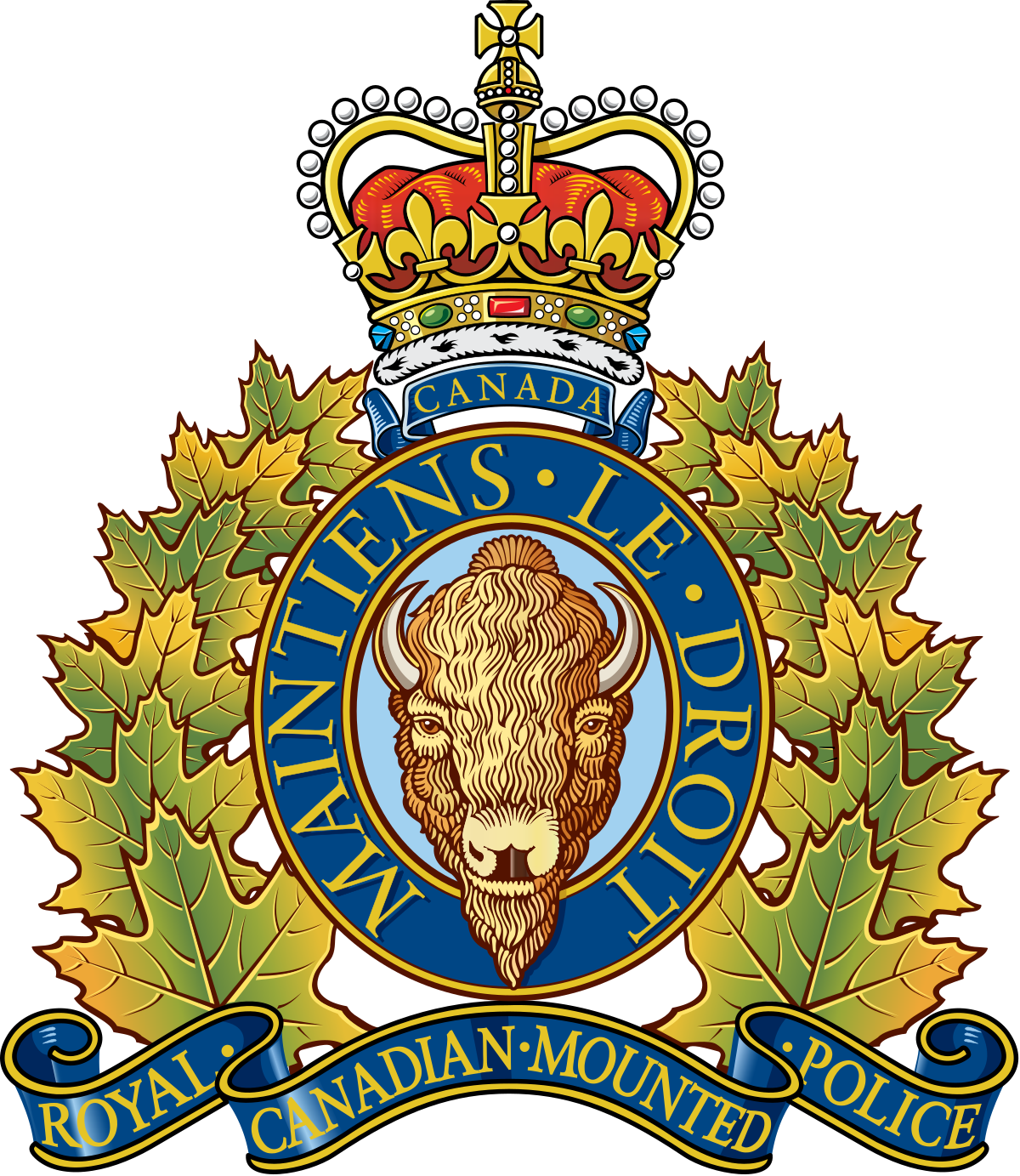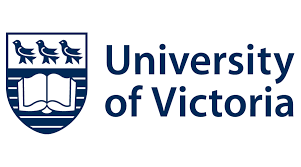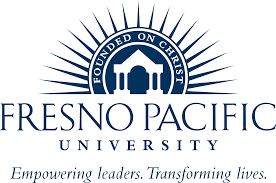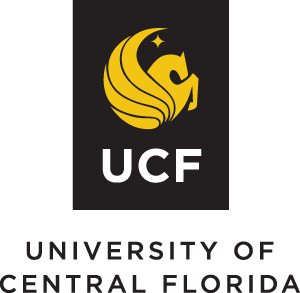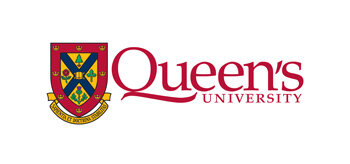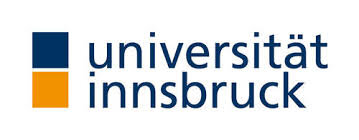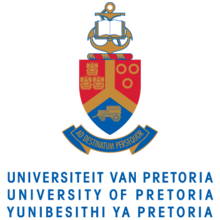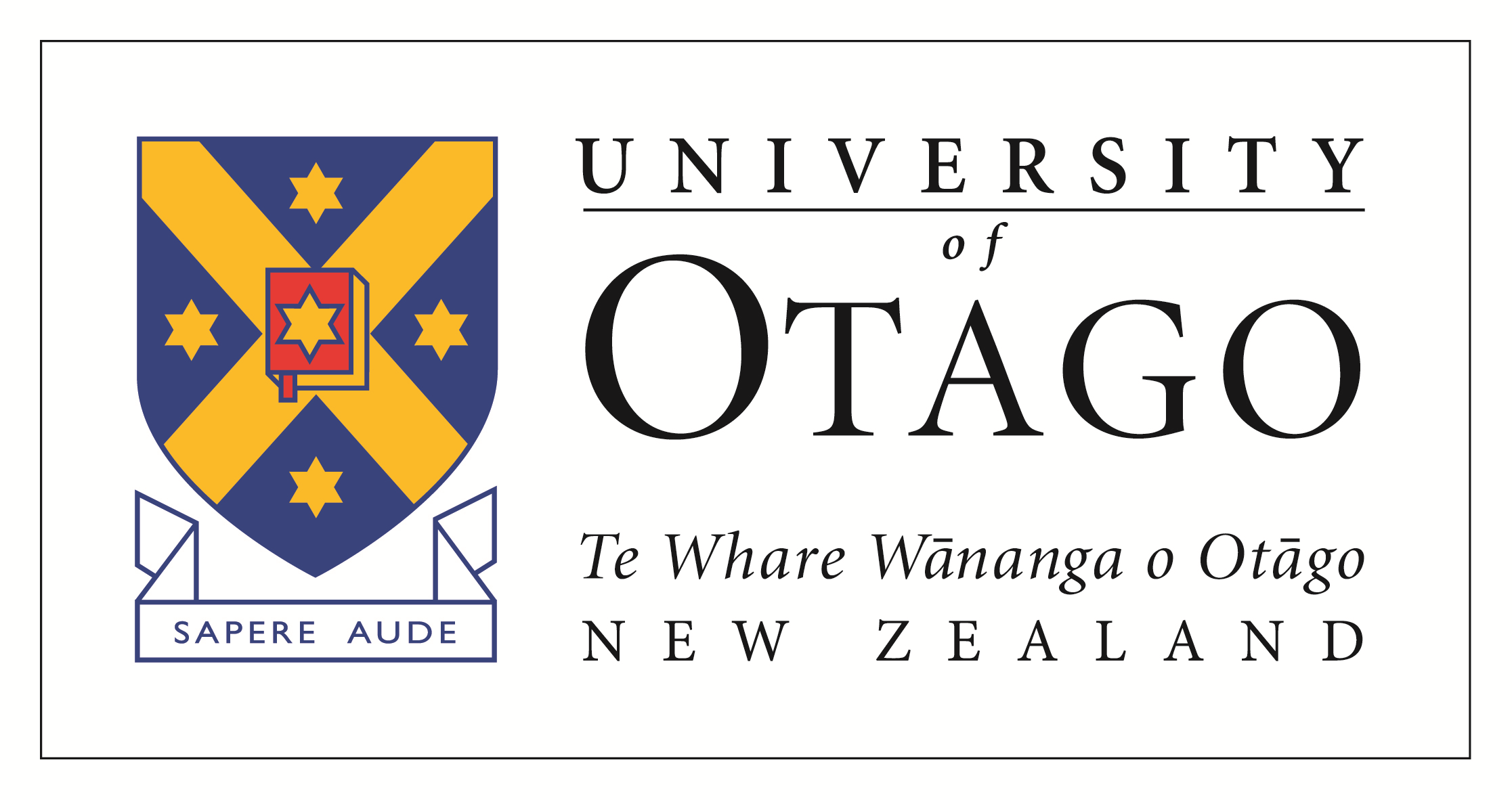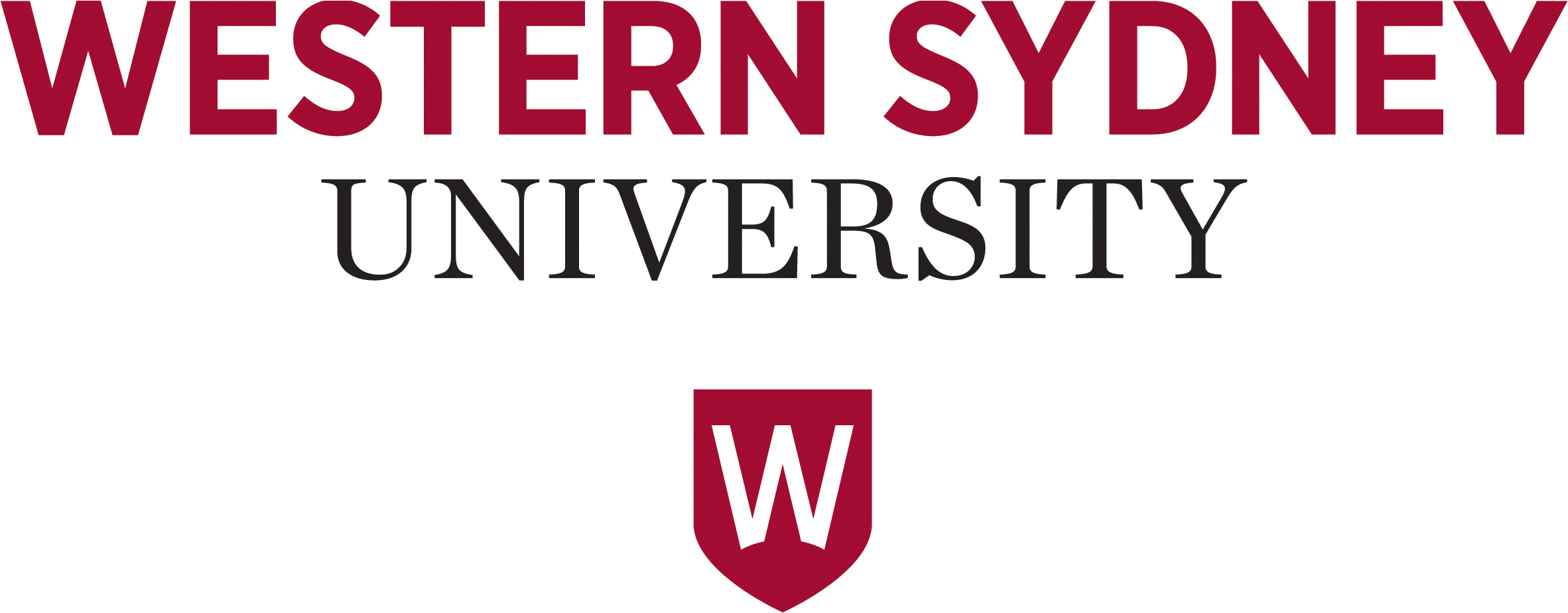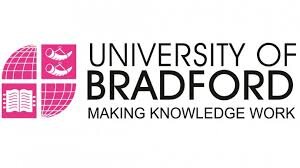Testimonials For ‘Leading At The Edge’
Testimonials From Chiefs of Police, Military or Other Police Officers
“Leading at the Edge is a ‘must read’ narrative of a little know aspect of Canada’s policing history. It chronicles the emergence of Canadian police officers working side by side with the military and independently, in some of the world’s most dangerous hotspots. Beginning with the RCMP deploying to post-colonial Namibia and extending to other nations, including war-torn Yugoslavia, Guatemala, Kosovo, East Timor, Sierra Leone, the Sudan, Palestine, Afghanistan, and Haiti, the book tells the stories of RCMP, provincial and municipal police officers who performed remarkable feats of bravery and community service over the past 30 plus years. Their assignments were both exhilarating and frightening, leaving a permanent imprint on the people that they protected and served, and on themselves. Ben Maure, a decorated member of the RCMP, highly educated, personable and professional, walks the reader through a series of missions, each a chapter to itself. I have had the good fortune of knowing Ben and many of the key participants in the ‘real life’ stories that are described in this book. These are true tales from the coal face. It is a history that had to be told and is best told by someone of Ben’s skill who was there himself. In this age of soul searching over the role of the police, I challenge anyone to dispute the dedication, the sacrifice, and the good name that these professionals brought to Canada and what they accomplished in faraway lands. Thank you, Ben for a great read and an important addition to the literature on Canadian policing.”
“Leading at the Edge provides complete, yet succinct details of the historical context behind the deployment of international peacekeepers in the various mission theatres. It also provides an intimate look into mission life through the eyes of Canadian police officers who actually served as peacekeepers and peacemakers, including their motivations, their rewards and even their losses. Most importantly, it provides lessons in leadership that any person can apply in unique and everyday situations. Leading at the Edge is a worthwhile read for not only those who have participated in international missions, but also those who aspire to do so and especially those who want to better understand what it is like to bring Canadian police expertise to those places that do not know the rule of law or the respect of basic human rights. Ben Maure is not only a student of history, but an active participant on the front line of peacekeeping at home and abroad. I highly recommend reading Leading at the Edge.”
“This book clearly illustrates the evolution of UN Peacekeeping from the Classical Peacekeeping , to Peace Monitoring, Peace building, Executive Authority, Peace Verification, Restoring civil order, monitoring humanitarian shipments, Peace enforcement and all missions dealing with humanitarian needs. Most importantly it depicts the individual abilities of RCMP members to immediately adapt, engage, innovate and face the unexpected challenges in a UN Mission. It heightens the awareness of the police who seek to participate in Missions to the radical changes in world security policy as we move closer to the determination and resolutions of cultural disputes by the United Nations. I feel this book is a read for all police who consider working in UN missions. I also believe that those who do, should in addition, arm themselves with cultural and historical knowledge of potential Missions to face an ever-changing and challenging world.”
“Author Ben Maure provides readers with a rare glimpse into the lives and missions of several Canadian police officers who have made personal sacrifices and have foregone the comforts of home to travel abroad to maintain peace in some of the most challenging areas of the world. As an organization that supports peace keeping measures, I appreciated this recognition of those who have served.”
“Leading at the Edge: True Tales from Canadian Police in Peacebuilding and Peacekeeping Missions Around the World is a must read for anyone interested in policing, politics or history. The stories contained within simultaneously transport the reader to far-off places and speak to the familiar values of Canadians here at home. The collection of works will make you proud of our officers who put on the uniform to teach, serve, and protect both at home and internationally.”
“This book is a source of inspiration for all those who recognize the value of freedom and our fundamental rights of peace. It allows us to grasp the full range of personal and professional emotions and feelings that police officers deployed for peacekeeping in the world go through. It also reminds us of the importance and need to continue to contribute to the efforts of international policing to achieve Canada’s goal of building a safer world by working to stabilize fragile states that are affected by a conflict. The book shows us that by committing to an international peace mission, police officers must show leadership, openness, flexibility, resourcefulness, teamwork and the ability to manage situations out of the ordinary. So, in addition to doing a remarkable police job and being internationally respected, these police officers are fully committed to their mission by trying to make a difference, if only for one person. Our police organizations also have great benefits in having members with strong experiences and a different and enriched vision of the cultural communities that make up our population. Remarkably, our police officers open up to the differences and develop attachment with the people of the host country, which is all in their honour. ”
“With evolutionary change in the nature of global conflict there was corresponding change in the concept of multilateral intervention. “Peacekeeping” grew to include options relevant to intra-state conflict with greater attention to vulnerable populations. The fundamental importance of rule of law and developing justice sector capacity were seen as key to sustainable peace. As a foundation of the new strategies deploying civilian police became a central consideration. Canada saw the contribution it might make and, while never leading total deployments among police contributing countries, the capacity and capability of the Canadian police peacekeeper is unquestioned.
Here, Ben Maure tells the stories of some of those police peacekeepers, across ranks and seniority, with a sampling of missions, involving conflict on six continents, over two decades. These are not stories of foreign policy objectives, complex mission strategies, or sustainable development plans. They are the recollections of peacekeepers, the insecure and uncertain environments in which they operated, the challenges they met, and the personal and professional relationships they establish. The individual stories are compelling, but perhaps they are more important from the perspective they highlight the role of the police peacekeeper, the front line representative of the international community, symbol of security, justice, and courier of the hope for peace, stability, and a brighter future for the civilian populations they protect.
”
“This work helps to understand the various issues related to missions taking place around the globe and to understand the risky and complex function that our Canadian police officers occupy on international missions. The author portrays the day-to-day lives of peacekeepers as well as the repercussions for them, both professionally and personally. It illustrates remarkably the state of mind and nostalgia of the police officers interviewed and transports us skillfully to different regions of the world. It is a pride to be able to contribute to peacekeeping by mobilizing qualified police officers to support countries in need. Participating in a mission sadly brings risks. Some of us have left their lives there or have come back with different memories that will remain forever etched in their minds. The City of Montreal Police Service recognizes the effort and commitment of all Canadian police officers involved in international peace missions, all with a common goal of achieving a better world for our planet. ”
“While reading this book, I could not help but connect deeply with the fundamental reasons for which I pursued this profession of policeman. This book restores the letters of nobility to our profession, so often forgotten or neglected. Having lived in several continents, I found very enriching and touching the various passages of stories experienced by our colleagues. The public should take the time to read this book in order to grasp the role of the police officer on mission and to be able to appreciate the altruism of these men and women. Many thanks to the author for taking the time and effort to write this book. It will be an inspiration for many people, police or not. On a personal note, I have always dreamed one day to go on a mission to help others and make a difference in their lives, because I consider ourselves lucky and privileged. Reading this book, it only confirms this dream .... maybe one day!”
“This is an important addition to the body of knowledge on peacekeeping, capturing several civilian police missions and explaining them in layman’s terms. The 10 selected missions represent a rich tapestry of unique experiences, previously little known and understood beyond the confines of this exceptional brotherhood. A must read for anyone interested in another facet of the complex world of peace support operations. ”
“Out of the spectre of human revitalisation in the troubled places of the world, Insp. Maure has created an insightful chronicle of what it means to be a police peacekeeper. In sharing his own experiences and preserving those of others, he provides insights which would otherwise be lost. In characteristic humility, he tells the story of his own quasi-lynching in Guatemala, a story whose detail I had not known even as the Contingent Commander. The historical vignettes he has assembled and his accounting of some of the most important missions in the modern era is a seminal piece of the peacekeeping literature of our time.”
Testimonials from Canadian, United States, Australian, New Zealand and U.K Universities
“Peacekeeping forces really do (on average) keep the peace, and their valor and courage should earn them the medals, parades, and statues bestowed on other military heroes. In this engaging book, Ben Maure shows the human side of two of Canada’s great contributions to the world: the Mounties and peacekeeping forces.
”
“Few individuals are better equipped to research and write about Canadian police peace keeping missions than those that have served in the field and experienced peacekeeping. As a police officer, international peace keeper and author, Ben Maure provides a well written collection of original stories from Canadian police officers that have served in international missions. These individuals often risked their lives to make the world a better place. Presenting the experiences of Canadian police officers serving in various missions throughout the world, this book illuminates the challenges and struggles associated with international peace building. Maure’s writing serves to capture the emotions and experiences of the individual officers, inspiring and motivating the reader to also serve in the global quest for peace and good order. The accounts of individual officers and their experiences while on mission are well described and reflected upon. Maure starts each story with a reflection upon the history and setting of the mission, outlining the need for outside peace keepers. Lessons learned during each of the mission experiences are neatly captured and articulated. Within the appendices, Maure provides an interesting discussion of the officer selection process and thoughts surrounding setting goals. In sum, Leading at the Edge severs as an inspiration to others and a benchmark of leadership in the uncertain and complicated world of international peace building. The book is a welcome addition to literature surrounding Canadian policing and peace keeping and is highly recommended for students and practitioners.”
“Leading at the Edge is an essential read for anyone interested in the police practitioner’s view and experiences during a peacekeeping deployment. The book looks at the police involvement in peacekeeping from the experiences of ten different police officers deployed to different post-conflict zones and is a thorough, comprehensive and accessible account of practical contemporary police peacekeeping and nation building. The book provides a clear guide to the real issues face by police officers deployed to such zones weaved together with a contextual overview of the history, politics and objectives of each of the ten case study missions. ”
“Canadians owe a great debt of gratitude to the courageous police officers who help in facilitating our peacekeeping efforts around the globe, usually very quietly and without much fanfare. Through their efforts, Canada is known the world over for its commitment to fairness, equality, and justice. There could be no better testament to their service than this book. Uniquely qualified through his own experiences, Maure deftly combines individual stories and perspectives with broader context that illuminate and drive home the pride and sacrifice that comes with this inherently noble but dangerous work. Maure expertly weaves together the various individual stories to convey a fascinating mosaic of perils and pitfalls, but also rewards and triumphs. This book is a brilliant treatise on peacekeeping, with all of its attendant complexities, as seen through the eyes of those police officers that have lived it.”
“What I love about this book is that it is both factually informative and contains personal narratives of Canadian peace officers. Leading at the Edge is a pleasure to read and provides an engaging inner glimpse into the RCMP’s international peacekeeping missions. Ben Maure has crafted a unique picture of United Nations policing, allowing readers to gain a deeper understanding of world politics and global conflict.”
“Leading at the Edge presents the experiences of Canadian police officers who have worked at the cutting edge of international peacebuilding operations. Through insightful first person perspectives it documents the everyday challenges of policing in post-conflict contexts. This is a book that should be read by any police officer before embarking on an international police mission. It also has academic merit: the case studies tell a critical history about the evolution of international policing and the increasingly more complex and dangerous missions it encounters. ”
“Leading at the Edge is an informative and intriguing read. Detailing the personal experiences of officers who have been deployed on various missions around the globe, each chapter provides a window into the honorable and rewarding work international peacekeepers do, as well as some of the demanding and challenging elements associated with policing abroad. In addition to being absolutely fascinated by each story, each mission/experience highlighted something new/different about the preparations, deployment, and tasks of international police officers. By the end, I had a new level of appreciation for what our Canadian law enforcement officers do abroad. I highly recommend this book for anyone who is interested in learning more about international peacebuilding and peacekeeping. ”
“Becoming a police officer is the result of a special calling, one that is generally driven by a desire to serve one’s community to make it a safer and better place for all. Across Canada, the United States and the globe, there are literally millions who have enthusiastically accepted this undertaking on behalf of a drive to enhance civility and improve quality of life. But there are only a select few in-law enforcement who have opted to take this challenge to a higher level and to travel to unstable and undeveloped regions of the world, often during or shortly after devastating conflicts or natural disasters, and to bring their commitment to improve humanity to a highly demanding stage. Ben Maure has taken the opportunity to outline in detail his personal experiences and those of his Royal Canadian Mounted Police colleagues who have volunteered for peace-building and peacekeeping missions across the world. This enlightening book will take the reader from one end of the globe to the other, across a number of post-conflict zones to the scenes of devastating natural disasters, and through the preparation, deployment and engagement stages that every international police officer can attest to, and will highlight the challenges, rewards and sacrifices that only those that have accepted this vocation can effectively describe. Whether you are a government official, policy maker, researcher, student, criminal justice professional, law enforcement officer considering assignment to an international policing mission, or just a concerned human being, you will find the portrayals and anecdotes outlined in this book enlightening, fascinating and awe inspiring. These accounts will clearly elevate the appreciation that we hold for law enforcement officers, peacekeepers and those who have opted to travel abroad to make the world a better place. The desire to help fellow human beings has been acknowledged as being honorable and noteworthy for centuries. The most inspiring quote comes directly from the Bible: “Blessed are the peacemakers, for they shall be called the children of God.””
“The broad outlines of Ben Maure’s collected stories are important in their own right as glimpses into UN realities to seek and build peace in fragmented societies. Most poignant are the vignettes of personal encounter, where service and connection are enacted in the stories above and beyond the confines of merely “doing one’s job”. Sustainable and transformative peace sprouts upon such profoundly humanizing initiatives. The book is also a testament to the necessary—albeit tedious—work that goes into verifying local follow through on high-level peace accords and national elections. A worthwhile read narrated winsomely. ”
“Leading at the Edge comes just when it is needed, providing a marvelous antidote to cynicism about the effectiveness - and even the need - for international peacekeeping. Developing ten true stories about impressive individuals doing impressive things around the world, Ben Maure gives the reader an accessible and inspiring account of how these delicate and often dangerous missions are carried out. Especially notable is that rather than viewing such activities from a distant, geopolitical perspective, Leading at the Edge invites us to experience and understand the human costs and courage that is involved. Bravo!”
“If you have ever wondered what it is like to be a police officer who is dropped into a foreign country, vibrating with ethnic or economic tension, to try to help bring democratic police reform to an indigenous police force, working with police officers from dozens of different countries, then this is the book for you. Because of my extensive UN Police experience, I am frequently asked how UN Policing is different from domestic policing, my answer is “If you make a mistake in domestic policing, you might get disciplined… you might get sued. If you make a mistake in a post-conflict region rife with ethnic tension… you might start a war.” Ben Maure captures the essence of the pressures and responsibilities of being a UN Police officer in a straightforward and honest manner. Maure’s writing captures the essence, the texture, the sensations, and the minutiae of unimaginable details involved in going to a strange country to try to bring peace and order. Each of these stories stimulates memories from my own missions, and each story reminds me that Canadian police officers were universally professional, compassionate, and reliable in all of their police missions. ”
“Extremely well written. Maure makes you feel as though you are along on one journey after another with some pretty incredible police officers doing peacekeeping work in the most difficult of circumstances. This book is must reading for anyone who wants to get a good sense of what peacekeeping is all about and why we do it. It is also must reading for those who haven’t even thought about it. You can’t read it without feeling proud.”
“Leading at the Edge’ allows the reader to appreciate the challenges, pitfalls, and great accomplishments achieved in ten Canadian Police Peacekeeper international missions. Maure’s thoughtful and historical text clearly and colorfully portrays the way that these peacekeepers have sought out these experiences in an attempt to make this world a safer and better place. These real stories provide an in-depth account and comprehensive narrative to advance the reader’s understanding of the peacekeeping mission and why they have been and continue to be so important.”
“Leading at the Edge by Ben Maure is a must read for anyone interested in learning more about Canada’s peacebuilding and peacekeeping missions around the world. Written from the perspective of someone who has been there, this book provides the reader with an insider’s keen insight into the successes and challenges associated with peacekeeping and peacebuilding. Rather than a 30,000-foot view of the purpose and outcomes of the missions, the author takes the reader right into the middle of the action, providing both the necessary context to understand the diverse, delicate, and complicated situations that face Canadian peacekeepers, but also the people involved in these missions. This is a compelling book that brings to life the roles and contributions that Canadian peacekeepers and peacemakers make around the world.”
“Drawing on Maure’s three decades of policing, along with first-hand accounts of other Canadian officers who have served on Canadian police peacekeeping missions abroad, “Leading from the Edge” provides rare insight into the important contribution the RCMP provides with respect to promoting and advancing peace, freedom, and democracy around the globe. Though written for a broad audience, this book also stands as an important scholarly contribution to the study of Canadian peacekeeping –– including a rare glimpse into the RCMP’s international operations. In all regards, this is a book that informed members of the public and academics alike will enjoy reading both for enjoyment and scholarly insight. ”
“This is an important book for Canadians, bridging generations and eras. An older generation of Canadians will remember the enthusiasm of a peacekeeping era, to which Canada made a significant contribution. Their children and grandchildren may yearn for a more decent and orderly age, to which they might contribute. The stories in this book will appeal to both generations. They are told in a conversational tone, but with important historical and analytical details. Tidbits of local color will stir the wanderlust in younger audiences, and the carefully recounted operational details are a primary source for students of international police operations - past and future.”
“Despite Canada’s continued efforts to promote international peace and security, the work of Canadian police officers deployed to peace missions around the world remains relatively underknown. RCMP Peace Officer Ben Maure provides highly informative and inspiring true stories of what life is really like as a Canadian police peacebuilder and peacekeeper overseas. Based on memoirs and other original sources, with heartfelt anecdotes and details, the book is excellent and its stories deserve to be heard by general readers interested in peace missions and scholars in criminology and other social sciences.”
“This book makes an original and valuable contribution to our understanding of international peace-keeping efforts by police. I would recommend it to anyone interested in this topic and consider it essential reading for police organizing or participating in international peacekeeping activities. ”
“Ben Maure has compiled an impressive series of case studies on the complexities of policing in international security operations. The book offers useful insight and both broadens and deepens our understanding of the multifaceted challenges and complexities of international policing operations. A welcomed and much needed contribution to the field of security studies. ”
“In Leading at the Edge, Ben Maure shares detailed accounts of RCMP officers deployed on UN or NATO missions. Written in an enthusiastic voice, while not being blind to the persistent challenges of peacekeeping, the reader can better understand the daily routines and inner monologues of deployed personnel. Police peacekeepers will continue to be an intrinsic component of international operations and this book provides keen insights on their experiences, from Haiti to Kabul.”
“This is a must-read book for anyone who wants to understand peacekeeping and the complexity of the situations to which it is applied. Through ten personal stories of Canadian policemen who volunteered for United Nations peacekeeping missions, Ben Maure lays out the sacrifices they made and the risks they ran. In so doing he provides the background for the ten situations and describes how the Mounties prepared for and overcame the challenges they encountered. This is a very useful, ground level view that clearly explains why peacekeeping is so difficult and dangerous.”
“Leading at The Edge” is a unique work that provides an in depth look into the world of international peace keeping and police training. Ben Maure superbly weaves insight, experience, and lessons learned throughout a very readable and thought-provoking piece. Clearly a must-read book for those thinking about launching into the PKO/International Policing Training World.”
“Singularity is probably the only word to define this book “Leading at the Edge”. Its impressive uniqueness takes readers into an unknown dimension where uncertainty captures you and slowly leads you to the light. Is it the history of human suffering in those post-conflict countries that gives you this feeling? Is it the mystery attached to the unknown? Is it truthfulness and correctness of the content? Is it the style of the author’s writing? Exemplifying the experiences of Canadian police officers serving in various missions throughout the world, the author makes extraordinary contribution by bringing the invaluable experiences of true peace keeping officers to the readers in the form of numerous algorithms delivered as one of the well-structured applied/practical leadership narratives. Ben Maure’s book genuinely took me back my days as UNPROFOR peace officer from Republic of Turkey in Sarajevo and Banja Luka and reevaluate my existence. I truly wished to have this book on my side then. However, its impact is not just limited to peace officers from Canada but all over the world, even beyond. For instance, this might be an excellent choice of a book for first year college students’ summer reading program to support their vision to become global citizens of the new world order.”
“A useful and informative account of international police support for post-conflict democratic transitions, filled with anecdotes and insights on the challenge of establishing locally-based and accountable police protection for communities threatened by armed conflict and criminal violence.”
“This is a remarkable book about the experiences of United Nations Peacekeepers in a variety of settings, all challenging, often dangerous yet always rewarding. The writing is straightforward, clear, detailed and accessible. Maure provides a concise history of these conflicts along with valuable details about the daily environment. On a regular basis these peacekeepers faced a range of threats from the presence of weapons to diseases that might attack their immune systems to difficult accommodations and long absences from home and loved ones. For anyone wanting to get past long-winded diplomatic postulating, this narrative will offer a truth on the ground that fills a very special void.”
“Leading at the Edge is a fascinating account of peacekeeping that will hold your interest throughout its pages. The book tells the story of great challenges met by Canadian Police Peacekeepers in locations around the world. The author has conducted authoritative interviews with peacekeepers and the authenticity shines through for every case. Whether the call for peacekeeping comes during civil strife or natural disaster, this volume shows how Canadian Police Peacekeepers have responded with great empathy and high professionalism. The ten cases cover three decades and locations span multiple continents. This book is essential reading for anyone interested in international relations, peacekeeping or Canada. ”
“This book takes you on a fascinating journey through the unique world of individuals committed to ensuring peace, justice and human security in foreign countries. Through their personal experiences of navigating difficult challenges and contexts, Maure highlights important lessons about having courage, humility, an open-minded adaptability, and at times a sense of humor. Overall a great read.”
“An impeccably structured novel portraying the RCMP’s role in ten global peacekeeping missions. This book is crucial in helping understand the issues related to the role of police officers within peacekeeping missions and the complex role RCMPs’ occupy. Readers will be glad they made the trip to the ten international missions from Canadian Peacekeepers depicted in the book.”
“Discussions about UN peacekeeping almost always relate to major operations involving regular military forces, but the actual experience is far more than this, with some of the most challenging initiatives being observer missions and post-conflict policing operations. Canada is one of the lead countries when it comes to UN police support missions and Leading from the Edge is a seriously informative gathering of personal experiences from ten operations over a 30-year period, stretching from Kosovo to East Timor and Guatemala to Sierra Leone.
What Ben Maure has set out to achieve is to give the reader a sense of what it is like to work as a serving and experienced police officer in highly uncertain and potentially dangerous environments. These are all too often radically different from normal police experience yet require the adaptation of that very experience to the specific circumstances to have the desired effect of aiding peacebuilding.
Leading from the Edge succeeds in providing a remarkable range of insights which show just how significant this kind of work is. Moreover, it does so with a very readable style. By taking a series of personal experiences and presenting them in an historical and organizational context, and doing so from a policing perspective, Maure provides us with a welcome insight into much-needed international endeavors that rarely get the attention they deserve.
”
“Leading at the Edge is a rich and original account of Canadian police officers experiences of international conflict during the last three decades. Canada’s police pride themselves in being highly expeditionary, able to deploy and help restore the rule of law in the most challenging of operational environments. Maure’s work provides valuable insights that should inform future international peace support missions.”
“This excellent book by Ben Maure is about the ongoing process of the globalization of security. The focus is on the role of the UN authorized international police missions in fragile states, in service of security, justice and legality. While the book is analytical and knowledgeable also in an “academic” way, it is entirely exceptional and unique due to the personal involvement of the author in these peace operations where the role of policing became so crucial. Instead of lecturing about the reality of international police operations, the author shares his personal experience and introduces the reader to the everyday reality of the globalization of security. For students of this crucial transition in world history where security moves from nations to the entire globe, this book offers not just analysis, but also unique personal experience. ”
“The world is a dangerous place,” so say political scientists and social commentators. Insurgents, guerrillas, and terrorists are all part of a larger cohort of non-state actors that are preventing the reconstruction of stable political systems across the globe. In this regard, Maure’s well-researched book on the role of police in peacekeeping is not only timely but is likely to prove to be a timeless contribution to how law enforcers contribute to restoring justice in countries suffering from political turmoil. Leading the Edge is an important contribution to what is often seen as a British-centric view of international affairs, and a discourse dominated by US perspectives. There is much that the Canadians do that should be reconsider through scholarship such as this book. Maure’s book helps balance this picture with tales from Canadian police in peacebuilding and peacekeeping missions around the world.”
“Ben Maure is a Canadian Police Officer who is more than adequately experienced to write about International Peace and tidying up the mess created by an international society. In writing this work he manages to do all things many writers fail to do. He informs, educates, entertains and as a consequence contributes to the world of policing knowledge acquisition. He is very fortunate to work in a policing institution that is recognized throughout the world as being fair and ethical in their principle operational strategies. However, the reader will not at any stage lose sight of the fact that policing is a dirty hands business and only its existential critics have the utopian belief that it can be done with clean hand. Ben Maure clearly understands the many pitfalls associated with policing at a local, national and international and he displays the intellect of a seasoned practitioner and the skills of an accomplished writer. More power to the caretakers of the mess that is created by society. ”
“Storytelling lately turned into a popular academic method to make knowledge transcend through cultural boundaries. Ben Maure applies this method in this book about international civilian peace operations from a policeman’s perspective. The 10 stories of his and his comrades’ missions to very different conflict zones in a period of three decades provide a colorful and deep insight into this still little documented reality. Though written from Canadian perspective this book is globally helpful for everybody who is interested in the particularities, problems, progress and projects of civilian-military or civilian peace operations. Ben Maure is a great storyteller who artistically features officers who went out to contribute their share to a peaceful world. His stories invite the reader to connect with the human beings in mission, with their ethics and values, expectations, ambitions, hope and fear, with their success and frustration. ”
“This book is a fascinating account of the role of Canadian police peacekeepers in international peacekeeping operations. After ceasefires have been negotiated, peace agreements signed comes the challenging task of both maintaining the peace and preventing a resumption of the violent conflict. This is a task that requires conflict sensitive development and humanitarian assistance. It also involves coherent and coordinated integration with civil society and trans national military actors. The success of each mission depends on clear mandates and flexible, effective and pragmatic leadership. Ben Maure’s cases demonstrate all the diverse challenges of such operations and how Canadian police peacekeepers have responded to all the different challenges. It is an inspirational book that should be read by all interested in effective peacekeeping and peacemaking post conflict. ”
“Sometimes critics frown upon peacekeeping missions because they never understand the true objectives and valuable contributions these missions make in war torn and or impoverished countries. In ten enlightening real life narratives from true heroes, Ben Maure not only encapsulated the integrity behind peacekeeping missions to some of the most dangerous places in the world but also highlight the challenges peacekeepers face during these missions. This is a well-balanced honest effort by Ben to enlighten all about the “ins and outs” of peacekeeping missions. The ten stories are gripping and can be read as an informative source in academia or to contextualise history. The style and the stories are however creatively positioned, allowing the reader to consume the content during a holiday as social reading. It does not only focus on the peacekeeping brief but venture past the peacekeeping protocol. The reader experiences the different missions first hand. Although most peacekeepers have police or military backgrounds, one realises the true humanitarian work these miracle workers have achieved during their missions. This book highlights events like supplying a meal to a hungry child to negotiating life threatening situations and loss of life. It also benefits the reader with humoristic tongue in cheek events to tolerate some of the serious human rights atrocities that Ben underscores in the book. ”
“This is an outstanding book. It’s publication is perfectly timed: for the UN Secretary-General says that conflict prevention and peacebuilding are now the UN’s top priorities. Through his ten empathetic biographies, Ben Maure illuminates the range of crucial roles which police can effectively play. He writes succinctly and accessibly, with the authority of experience, detailed case studies and careful research. He writes honestly about the challenges, concrete difficulties and impediments of working in commonly deprived, disordered, and dangerous situations. He also shows, though, the satisfactions of saving lives, resolving individual handicaps, applying human rights, reducing violence and strengthening capacity for humane government. When an elected member of the Security Council in 2014, Australia led adoption of a Resolution recognizing the importance of increasing the proportion of police in peacekeeping missions, which member states unanimously supported. Ben Maure shows that the RCMP, with high professional and ethical standards, and motivated in part by the wish to bring greater justice and peace to countries where they are desperately needed, can be practical and effective contributors. This book should be not only an inspiration to readers and a guide to foreign policy makers, but also a valuable tool for training more peacekeepers. ”
“The very first time I have received a copy of manuscript of this book, I thought that I might have to spend weeks in looking for terms of United Nations (UN) mechanism in human rights protection, peacebuilding, and operation policies in order to understand and make the comments. But just only reading a few pages, Ben J.S. Maure changes my attitude completely. The author makes me understand the pictures of UN operations and missions in several violence conflicted situations easily.
The book reveals so many facts that have not been brought to public. The most significant of this book is that Maure could display the UN security, and peace missions on the human basis, that mean in all the operations human beings are the keys to success and the failure of the missions. As a peace worker, we might have focused on the agreements made on the negotiation table, but the true success comes from the application by the people who carry those agreements into practice, and mostly those people have been working in the field risking their lives in order to connect several pieces of fragile social structure to become a strong condition of peace and security.
Finally, I have almost forgotten the roles of the police as a peacekeeper. This book reflects the crucial roles of police peacekeepers. Very often that we keep on talking about fact findings that might lead to transitional justice in peace making process, but we have been rarely talked about the police that helps to investigate and reveal so many facts. Thanks to Maure to bring up this forgotten facts and shading lights to one of the most important elements in peacekeeping, peacemaking, and peacebuilding processes. In all the notions we could learn from this book, Maure makes it so easy and enjoyable for the readers. This is one of the books that once you start reading it, you will continue reading till the end. One of the” ”most recommended to read.”
Testimonials From Librarians
“I really enjoyed reviewing your book. I learned a lot about the historical backgrounds of the countries where the Canadian peacekeepers were deployed. The humourous anecdotes and relevant photographs created ongoing interest in the stories. I now have a greater understanding of what Canadian peacekeepers do, what dangers they face and how they make our world a better place. ”
“Informative, Enlightening, Courageous, and Inspiring. Ben J.S. Maure has produced an insightful and important work that offers an in-depth account of peacekeeping missions from a collection of experiences. The book educates and upholds our national peacekeeping values from the viewpoint of an R.C.M.P. officer and Canada’s role in preventing armed conflict and securing peace. A valuable read to anyone who wants to keep up-to-date on Canada’s involvement in peacekeeping activities in the world. A recommended read for the layperson.
”
“I must admit I’m not much of a history buff but you kept my interest throughout the book and I wanted to keep reading. The pictures were a bonus! It was like I was actually there while I was reading. Great work! Your research was incredible. Congratulations on a job well done! ”
“Leading at the Edge by Ben Maure offers insight to news headlining events in a behind-the-scenes way. It presents these stories from a perspective that is not very well known, namely the RCMP working to train a civilian police force overseas. The natural order of following a mission at a certain locale from beginning to end makes it easy to remember where in the world the chapter is set and when it is happening.”
Testimonials From Fellow Authors
“Everyone is familiar with Canada’s Mounties, or, more formally, the Royal Canadian Mounted Police (RCMP) (French: Gendarmerie royale du Canada (GRC)). These law officers are recognizable in their Stetson campaign hats, black boots, red serge (formal uniform tunic), and are world renowned for their integrity, objectivity, and commitment to law and justice. But not everyone is familiar with how wide-ranging, far- reaching, and risk-laden the adventures select members of this esteemed law enforcement agency have taken part in over recent decades.
RCMP veteran Ben Maure takes readers on an exhilarating and engaging odyssey to the far nooks and crannies of the globe. He highlights several Canadian police officers serving as U.N. Peacekeepers, assisting NATO, and serving as law enforcers and trainers on some of the most intriguing and perilous missions in which any police officer could possibly participate.
From the births of new nations in Africa, allowing some people their first opportunity to cast a vote, to Balkan countries devastated by civil war, to the travails in East Timor, Guatemala, and Haiti, to the terror of the Taliban in Afghanistan, the Mounties have had an impact.
Maure introduces the reader to several brave RCMP officers and provides a glimpse into their daily lives as they cope with the dangers and stresses of these unique foreign deployments. Readers also witness the diplomatic tight rope Canadian commanders had to walk, dealing with law enforcement contingents from countries with vastly differing law enforcement traditions, experience, and skill levels.
Maure takes readers along on these Canadian cops’ personal journeys and shows how the efforts of the RCMP overseas changed not only the lives of the people they’d come to help but also of the Mounties who’d found that their own lives had changed.
Aside from these officers’ compelling stories, Maure gives readers a valuable, well footnoted, and remarkably detailed for its concision, history lesson. He delivers the history of these countries’ struggles and his accounts put many of today’s international tensions in their proper perspectives, allowing the reader to better understand the present and, perhaps, anticipate the future.”
“Maure’s book serves as a well-researched reference text for police officers interested in serving with Canada’s International Peacekeeping Operations.”
“ The work on ‘Leading At The Edge’ takes readers on a journey of Peacekeepers from Canada in Ten International Peacekeeping Missions. It is a must-read book for Peace and Security actors and anyone interested in Peace and Security studies. Maure emphasises in his work on how Peacekeepers have contributed to make this world a safer and better place to live. By using real narratives from peacekeeping missions, Maure advances our understanding not only of how peacekeeping works but why. ”
“Ben Maure has skillfully presented the essence of the challenges and rewards faced by Members of the Royal Canadian Mounted Police (RCMP) and other Canadian Police colleagues as United Nations Civilian Police (UNCIVPOL) peacekeepers from their first mission with the United Nations Transition Assistance Group (UNTAG) in Namibia1989-1990 to present day. Maure’s Leading At The Edge is a superbly presented description of UN missions from a policing perspective but more importantly, of the human aspect for individual RCMP UNCIVPOL peacekeepers and their families, and often-innocent citizens impacted by the ravages of war and internal conflict. His descriptions of the politics of the United Nations, and some member states who have contributed police and military peacekeepers elucidates life-threatening manifestations resulting from corruption and self-serving decisions rarely exposed in other publications. Yet acts of integrity demonstrated by RCMP UNCIVPOL peacekeepers steadfastly punctuate what has become the international reputation of the Force to Maintiens le Droit.”
“Ben Maure’s efforts represent well-documented chronicles of how the Canadian law-enforcement community is frequently tapped to serve abroad in support of both Canada’s broader foreign relations policies, and multinational front-line regional stabilization efforts. There is no doubt Leading at the Edge will be of interest to those engaged on a regular basis in law enforcement, national security or international relations. However, the book’s primary value is that it is a means to broaden the awareness of the general public that the duties of those who elect to “serve and protect” are not confined to domestic jurisdictions. As demonstrated in Leading At the Edge, they also undertake a variety of mission profiles with dedication and pride in some of the most challenging locations around the world.”
